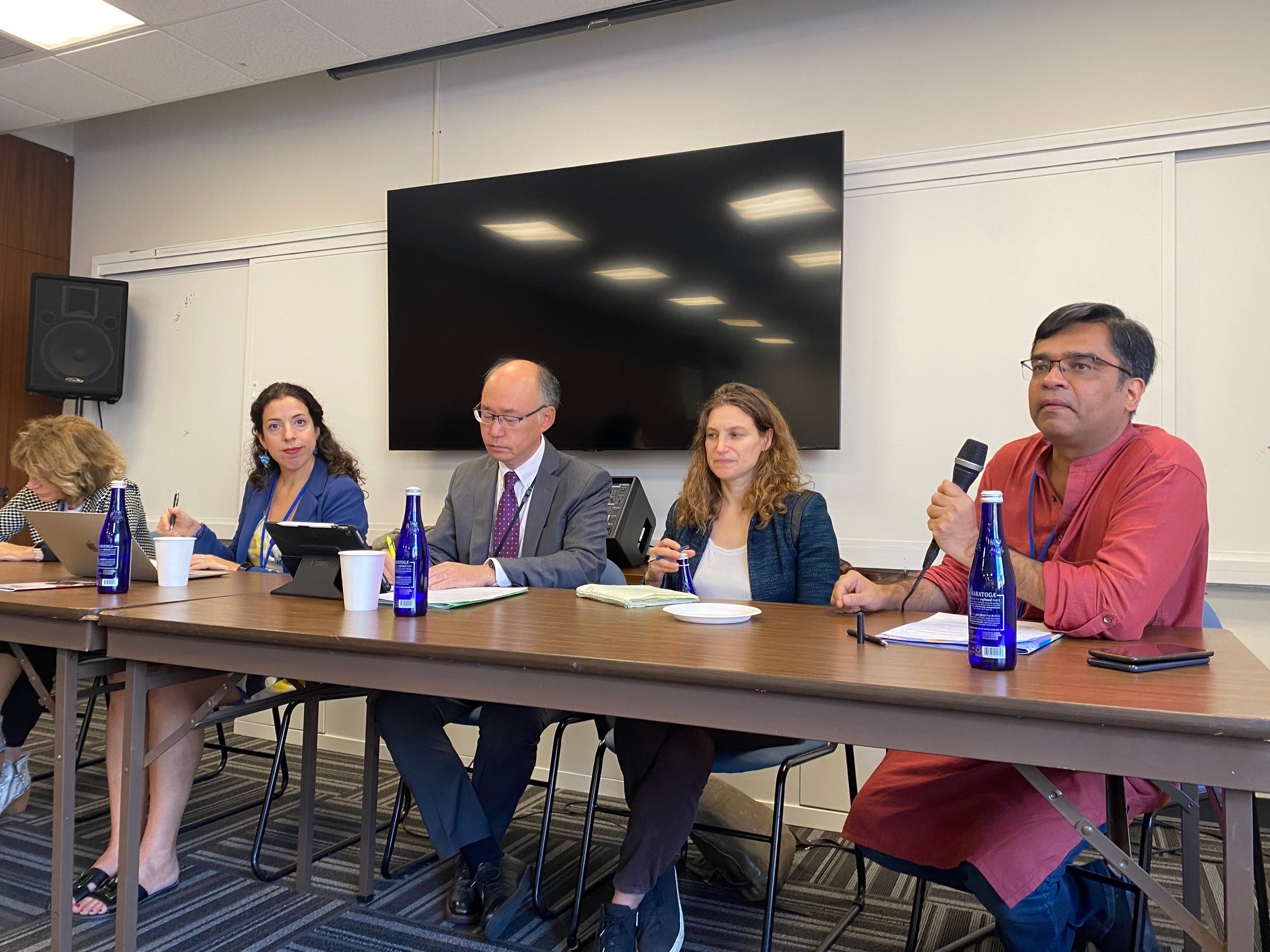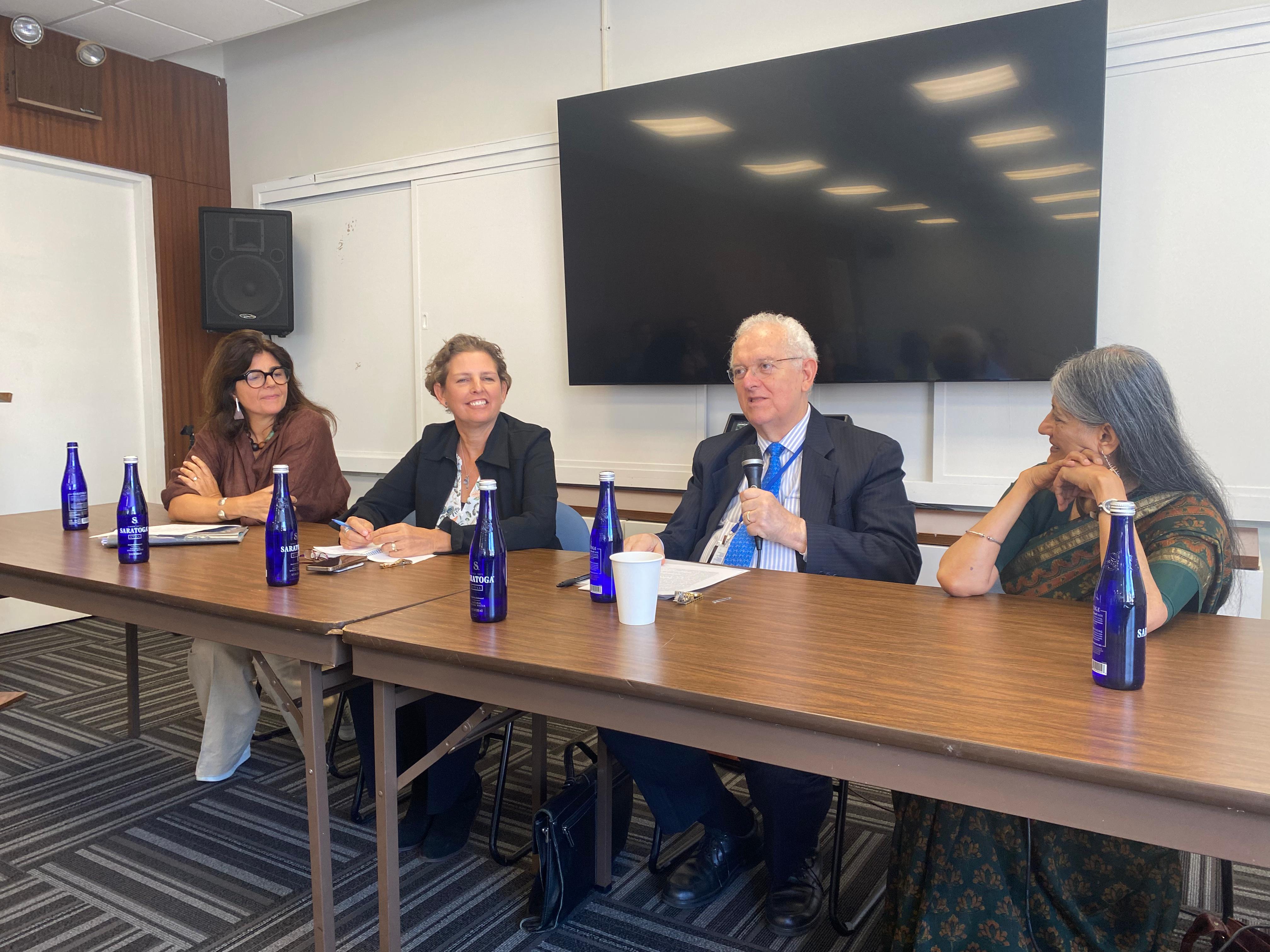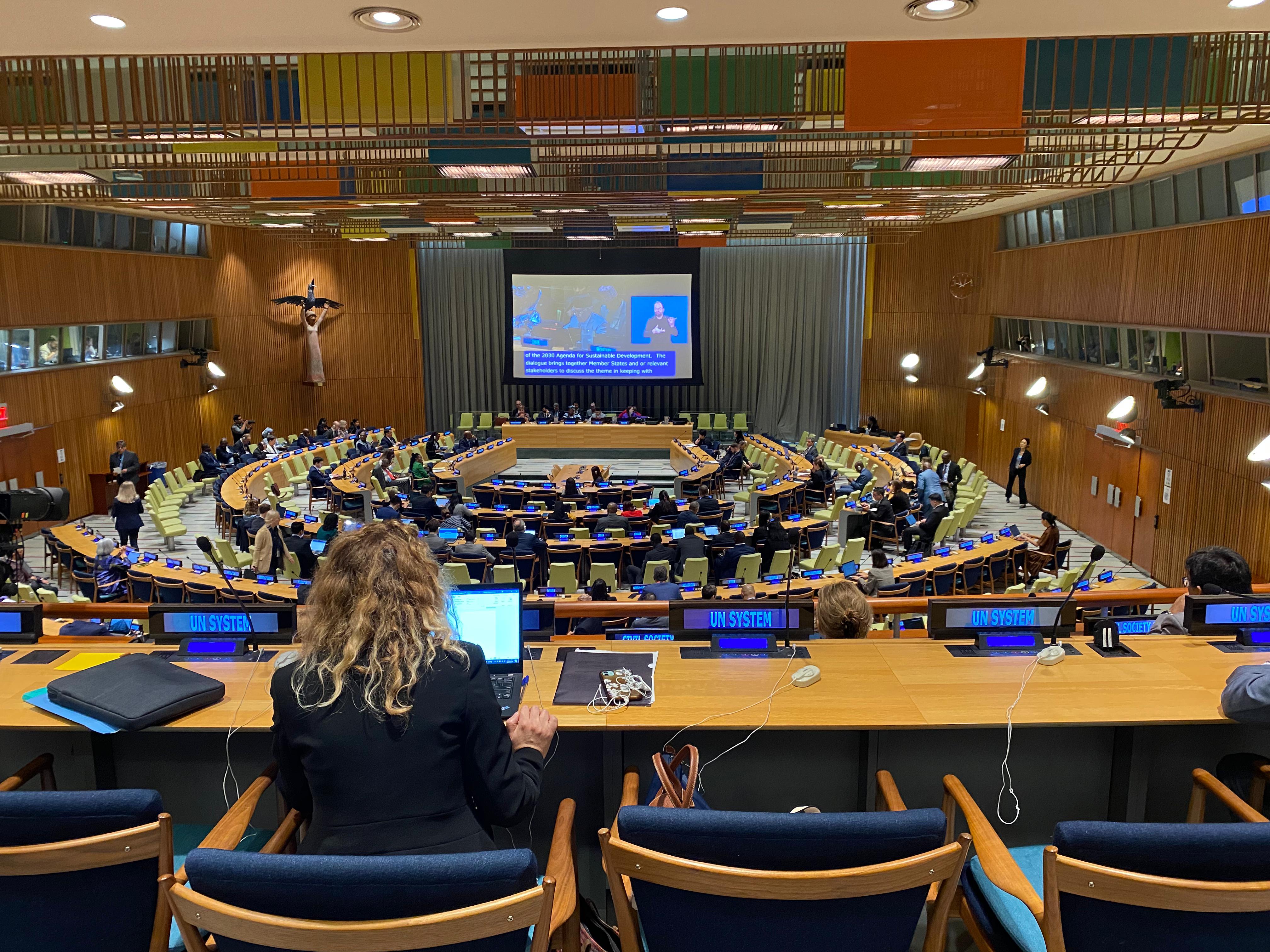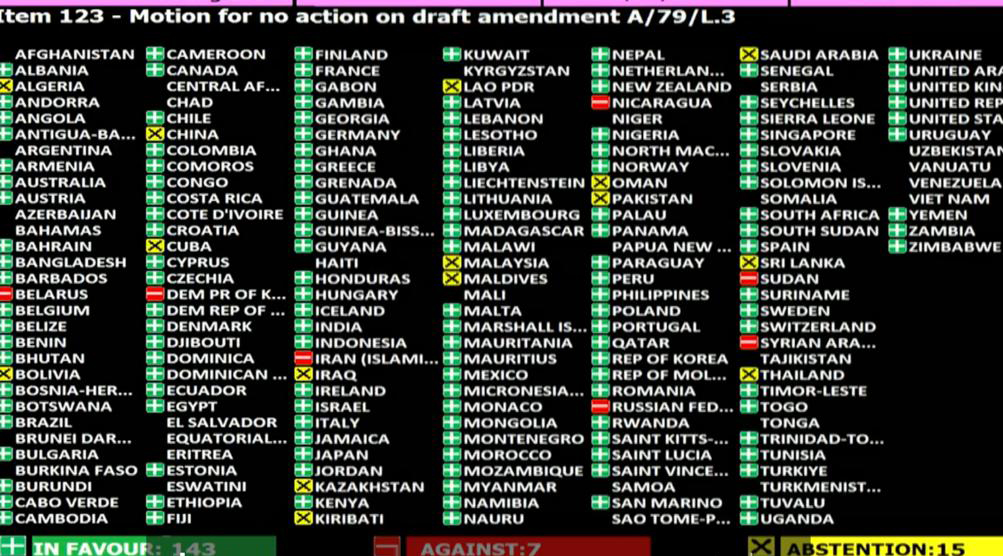
GI-ESCR’s Active Involvement in the Process Towards the New Pact for the Future
On 22 September, Heads of State and Government—representing the world's peoples—adopted the Pact for the Future at the United Nations General Assembly. The document aims to set the path for an equal, just, and peaceful world. The approval followed a lengthy negotiation process, which included five rounds of drafts and an attempt by Russia to derail the vote. Our participation throughout the process was fundamental in ensuring that human rights, especially economic and social rights, were central to the debate.
Our Role in the Process Towards the Summit
Throughout the process, we participated in multiple virtual and in-person meetings held in New York and Geneva, where we could share our perspectives and collaborate with partners. In May 2024, we actively participated in the Civil Society Conference in Nairobi. This provided a valuable opportunity for us and our partners to agree on the priorities we wanted to advocate for and to plan our lobbying strategy. These efforts were essential in ensuring that the Pact accurately reflected the states' commitment to human rights. We collaborated closely with country missions to ensure that the final text emphasised the importance of economic, social, cultural and environmental rights.
During the Summit's Action Days, we organised and supported events to raise awareness among states of the need for a new human rights paradigm. These activities included discussions on fiscal reforms, human rights financing and meaningful civil society participation in global decision-making processes.
Our efforts focused on three key areas:
1. Recognition of Human Rights
We advocated for including human rights in the Pact. This aim was achieved. The Pact gives human rights, one of the three pillars of the UN, a central focus. In addition, concrete commitments regarding economic and social rights were included, such as the rights to health, education, work, social protection, housing, access to technology, water and sanitation availability, and sustainable management of clean and safe water, sanitation and hygiene for all. The Pact also contains strong measures regarding prohibiting all forms of discrimination, including racial, religious and other forms of discrimination and gender equality. Through the Pact, the States commit to taking bold, ambitious, accelerated, just, and transformative actions to ensure the full and equal enjoyment of all human rights and fundamental freedoms for all women and girls. This explicit commitment is an important step forward in the face of a rollback of women’s rights.
2. Structural Reforms to the International Financial Architecture
We advocated for reforms in the international financial architecture and development measurement mechanisms, to create economies prioritising human rights and planetary well-being.
The Pact includes essential commitments. For example, States have:
- committed to accelerating reforms to address today's and tomorrow's challenges;
- called for urgent and ambitious action to ensure that the international financial architecture becomes more efficient, more equitable, fit for today's world, and responsive to the challenges faced by developing countries in closing the SDG financing gap;
- committed to strengthening developing countries' voices and representation in international financial architecture;
- agreed to pursue governance reforms at the international financial institutions and multilateral development banks to enhance the representation and voice of developing countries in global economic decision-making, norm-setting, and global economic governance;
- committed to ensuring that countries can borrow sustainably to invest in their long-term development;
- committed to supporting developing countries more effectively and equitably during systemic shocks and stabilising the financial system.
The Pact also requests that the UN Secretary-General establish an independent high-level expert group to develop recommendations for new measures of economic well-being that complement or go beyond Gross Domestic Product (GDP). They should deliver the recommendations at next year’s UN General Assembly and initiate a UN-led process to implement them.
In the Pact, States have also made significant commitments regarding the necessary changes to the tax architecture. Among other things, States have committed to:
- create a more conducive environment at global, regional, and national levels to enhance domestic resource mobilisation;
- strengthen efforts to prevent and combat illicit financial flows, corruption, money laundering, and tax evasion, while eliminating safe havens and recovering assets from illicit activities;
- promote inclusive and effective international tax cooperation;
- explore options for international cooperation on taxing high net-worth individuals in relevant forums.
3. Just Transition
In line with our priorities, we also advocated for the inclusion of just transition in the Pact. The Pact establishes commitments to reduce greenhouse gas emissions and triple global renewable energy capacity, while recognising the need to phase out fossil fuel subsidies and increase climate adaptation financing in developing countries.
The text also expresses deep concern over the slow progress in addressing climate change and highlights commitments made at the last annual UN climate summit. These commitments include transitioning away from fossil fuels in energy systems in a just, orderly, and equitable manner, with the aim of achieving net-zero emissions by 2050. The Pact also stresses the need to accelerate decarbonisation in heating, transport and power generation. Additionally, existing commitments to phase out inefficient fossil fuel subsidies are reaffirmed, with inefficiency defined as subsidies that do not meaningfully address energy poverty.
Promises of Change and Open Challenges
The Pact for the Future, though not perfect, signifies significant progress in our key areas of focus. State representatives have acknowledged the need to strengthen the multilateral system and its institutions to better adapt to a changing world. They must be prepared to address both current and future challenges. A renewed commitment to multilateralism has been pledged. Additionally, they have reaffirmed that the three pillars of the United Nations –sustainable development, peace and security, and human rights– are equally important and interdependent; none can exist without the others.
However, the Pact’s text also presents significant challenges. While we succeeded in securing language that protects human rights, the document lacks clear guidelines on how States should implement these rights, leaving room for the potential privatisation of essential services. Moreover, the strong emphasis on private investment to achieve the SDGs and the promotion of public-private partnerships raises concerns, as these approaches could prioritise economic gain over social well-being.
Our Impact
Our participation was essential in ensuring that the Pact for the Future focused on human rights, even when political and economic tensions threatened to dilute its content. We influenced the Pact's content and highlighted the need for states to prioritise social and economic rights over market interests.
One of the most concerning developments at the Summit was the shrinking space for civil society participation. Along with other organisations, we faced restrictions on in-person participation and denounced the lack of transparency in creating opportunities for dialogue. This retreat from civil society inclusion limits our ability to influence decisions and hinders progress toward sustainable and equitable solutions.
The Future: Finance and Social Development
Following the adoption of the Pact, attention now turns to strengthening its financial and fiscal aspects. We are already working towards the 2025 Conference on Financing for Development (FfD4) and the Second World Summit on Social Development, also set for next year. These events will be key in ensuring the effective implementation of the Pact’s social and economic commitments, with a continuous focus on human rights.
Adopting the Pact for the Future is a significant step, but its success hinges on the effective implementation of its commitments. Our involvement will be essential in ensuring that human rights stay at the core of this new phase of global development.
You can access the Pact For the Future here.









